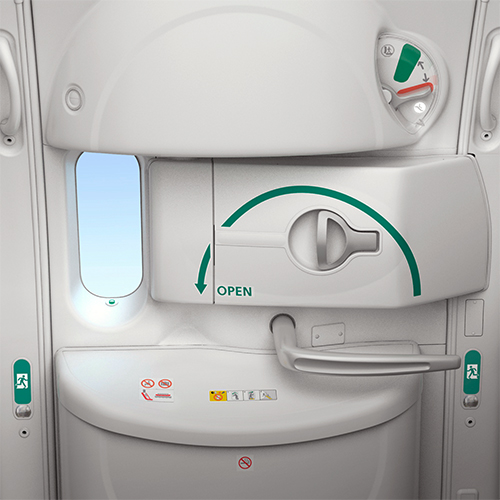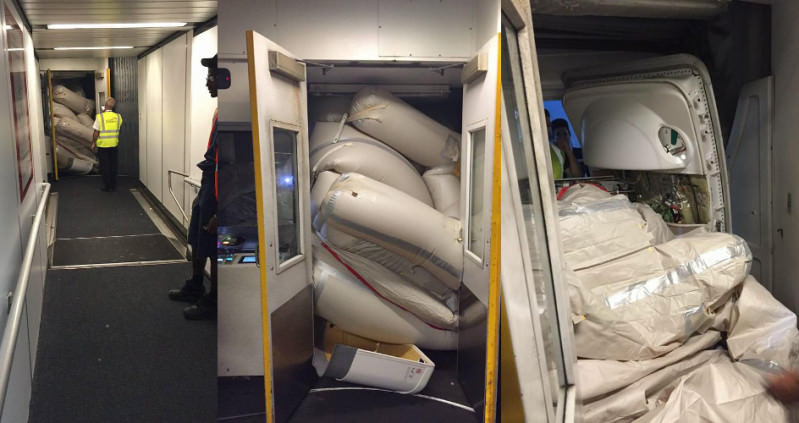Welcome to the first installment of Ask High Tech Flight, where we will answer your aviation questions! Tweet @hightechflight with the hashtag #askhightechflight to have your questions answered or send us a message on Facebook
When flying, often you’ll hear weird words or phrases or the occasional “bing”, and you may think to yourself, what does that mean? Let’s explain some of the more common terms in the flying world.
“Cabin Crew, arm doors and cross check”
When a flight leaves or arrives, the doors must be “armed”, or basically switched to emergency mode. When doors are armed, if opened, the slide inside the door will automatically inflate for use in an evacuation. Crosscheck means double check with the door opposite to you, and make sure that the door has been properly armed. Some airlines will end this with an “all call” where all of the cabin crew will have a giant conference call to double check everyone has armed their doors. Of course, this can go wrong and every now and then a slide accidentally will inflate, if the door hasn’t been properly un-armed.


“Cabin Crew, prepare for landing”
This message lets crew know that the aircraft is about to begin its descent and crew need to pack everything up and ensure that seatbelts are fastened and check all tray tables and window shades are up. This basically tells them that they need to get the cabin ready to land, and ensure that all the appropriate safety checks have been completed.
So what about all those doorbell noises you hear on your flights? When you next fly on an Airbus, you may hear the following:
“Ding”
Usually, a ding will indicate firstly the landing gear being pulled up and then the second letting the crew know its safe for them to leave their seats. Whenever the seatbelt sign is switched on or off the same sound will occur. During cruise, a single ding usually indicates a passenger needs assistance and has pressed the call button.
“High-Low Chime”
This is used when cabin crew want to talk to each other, and depending on the type of call the sound will be heard either in the entire cabin for a whole crew call or just one area where two specific stations need to talk to each other.
“Triple Low Chime”
This is usually an important message from the captain letting crew know they need to take their seats immediately or that there’s something important they need to know. In the case of the triple low chime, usually, crew will be told to take their seats immediately which involves them taking the nearest available seat. If during service, crew may have to abandon the cart in the aisle, and ask a passenger to hold it.
“5 Chimes”
In the event of an evacuation, the captain will do 5 chimes and possibly announce “This is the Captain, evacuate, evacuate, evacuate”. Hopefully, this never happens but in an emergency do not take your bags with you!
